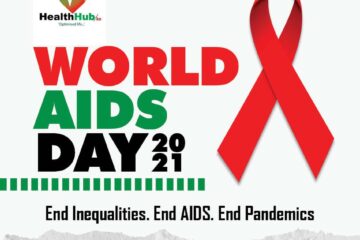To maintain a healthy lifestyle, you need to get proper nutrition. Meeting the nutrition needs for men is vital for their everyday living. Excellent nutrition keeps you in perfect shape and maintains productivity. What’s more, Proper nutrition guarantees:
- Better immunity
- A good mood and betterment of self esteem
- An energetic lifestyle
- Building of muscles
- Reduced chances of hypertension
Eating right is the only solution to one’s better nourishment regardless of your age. Nutrition entails getting what we require for health and growth from food, and a healthy diet is the best selection of foods and drinks that will help us to achieve that.
According to the World Health Organisation and Food and Agriculture Organisation (FAO), an individual should ensure that they take foods from the five food groups. taking variety of foods is important for the intake of a variety of nutrients, vitamins and minerals.
- Eat foods from the grains and cereals group and the starchy foods. Yams, arrowroots, potatoes, bananas, maize, oat, wheat. Also, ensure the whole grains are included in your diet because of fibre. They are good for digestion.
- Take protein foods such as lean meats, eggs, take fish twice a week for omega 3. Include the legumes and nuts in your diet because they have lesser cholesterol and are high in fibre for better digestion.
- Take dairy products as they contain amounts of calcium. Take milk, yoghurt, cheese or their alternatives. ( in case of any intolerance please consult your dietician or doctor)
- Take fruits and vegetable. Ensure you take five portions of fruit and vegetables in a day. Ensure you choose fruits of different colours.
- Drink a lot of water
- Limit or avoid the foods and drinks with added sugar on them and also those that are processed because of the high sodium and nitrites levels.
- Limit alcohol intake.
- When it comes to fat, ensure food is cooked with unsaturated; fats those from plants rather the saturated fats from the animals. Avoid deep fried foods to avoid the occurrence of diseases such as diabetes, hypertension, and cardiovascular diseases.
Energy Intake According to Age Groups
Energy intake varies according to age and also the activity level. Here is a breakdown of nutritional needs by age groups.
- For the age of 19 to 50 years: these age bracket need more energy because this is the productive age in other terms the ‘sowing period ‘. There are so many commitments to build your future life. There is education, family making, and hustling for better life.
- 50 to 70 years: The energy needed is much lesser than when the individual was younger. They require foods that are nutrient rich without excessive kilojoules. You require less of some foods such as the lean meats, eggs, nuts and seeds.
- Above 71 years: At this age, you need slightly fewer grain (cereal) foods and slightly more dairy foods and their alternatives, such as milk, cheese, yoghurt and calcium enriched rice milk. keep an eye on your calcium and phosphorus intakes too by dairy eggs, sardines or salmon, almonds, cashews, rice, wheat, oat bran, and peanut butter.
How do you determine the servings of your foods?
- Vegetables: 5-6 servings which add up to 75 grams. For example, ½ cooked green or orange vegetables or ½ cup cooked dried or canned beans peas or lentils or 1 cup of green leafy vegetables.
- Fruit: 2 servings for example, a medium apple or banana or two kiwi or plums, try as much as possible to take whole fruits rather than fruit juice and dried fruit only occasionally
- Grain foods: 4.5 servings for those the age of 70 years, 6 serves for younger men. A standard serve is 500 kilojoules. Example, one slice of bread, 12 cups cooked porridge or ½ cup cooked rice or pasta. At least 2/3 of the choices should be whole grain varieties.
- Lean meats and poultry, fish, eggs, nuts and seeds and legumes / beans:5 to 3 servings, depending on age. Example, 65 grams cooked lean red meats, two large eggs, 150 grams of cooked or canned lentils, chick peas or split peas (preferably with no added salt).
- Milk, yoghurt and cheese or alternatives: 2 to 2.5 serve, depending on age. A standard serve is 500 to 600 kilojoules for example a cup of milk or ¾ cup yoghurt.
It is common for men’s diet to miss the following important minerals and vitamins.
- Vitamin D: A nutrient that is gotten direct from the ultraviolet B rays from the sun. It strengthens the skeleton and reduces the inflammation of the arteries. Ensure you check nutrition labels of the foods that you buy so that you buy foods fortified with the diet (fortifying is addition of minerals and vitamins in foods that are lacking). Foods that are rich in vitamin D are fish (salmon), meat, eggs, dairy and mushrooms
- Magnesium: lack of this mineral may lead to a risk of heart disease. The food sources are avocados, nuts, legumes, seeds (flax seeds, pumpkin seeds) whole grains some fatty fish (salmon)bananas and green leafy vegetables.
- Vitamin B12: sources of vitamin B12 include meat poultry, eggs, fish, cheese, yoghurt, and milk and fortified cereal.
- Potassium: Facilitates glucose metabolism in the body as the primary source of energy. It also works to lower sodium levels in the blood. Sources include bananas, avocados oranges, lemons and limes, potatoes.
- Iodine: Important for the thyroid gland. Lack of iodine causes goitre which is a very dangerous disease. Ensure you take that iodised salts and soak most of the legumes to reduce the amounts of phytates in the legumes.
Using these tips, you can optimise your nutrition and come up with a diet that fulfils all your nutritional needs. Make sure to eat a variety of foods and stick to a healthy meal plan. In case you need nutritional consult, don’t hesitate to reach out to us and kick start your journey towards healthy living.


0 Comments